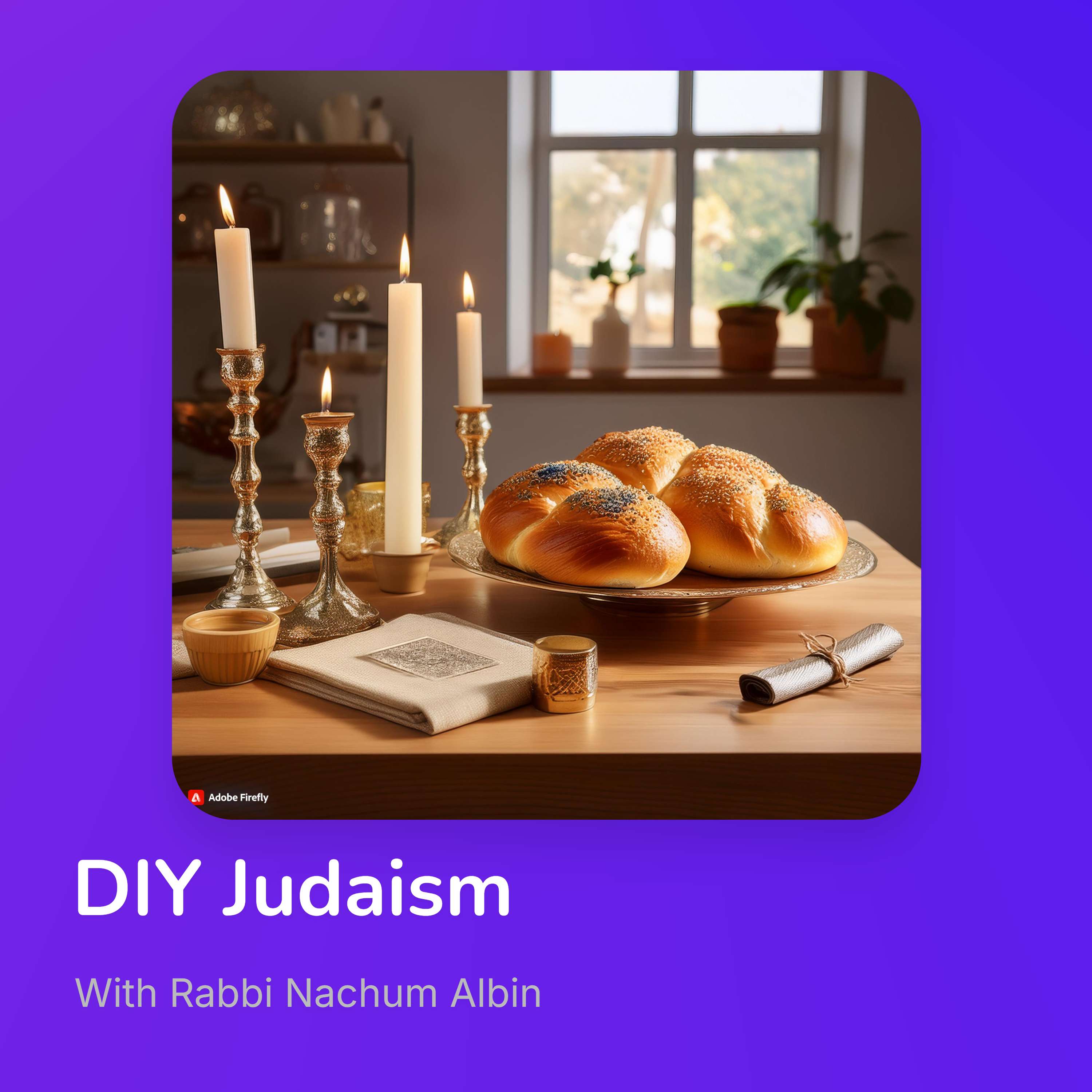Episode Transcript
[00:00:00] Dip the apple in the honey. Hi, I'm Rabbi Nachim Alban, and welcome to do it yourself Judaism, where we learn about practical Judaism in your own place, at your own pace. This is episode number one.
[00:00:16] As we are approaching the high holidays in Rosh Hashanah, we're now in the month, the jewish month of Elul, which is the month before Rosh Hashanah.
[00:00:27] Coming to the high holidays, it's a time for reflection, time for introspection, time to think about this past year, what we've achieved, what we've accomplished, where we may have fallen short, and to prepare ourselves for the upcoming new year, our plans, our thoughts and feelings, what we want to achieve and accomplish in this coming year.
[00:00:48] One way of keeping that in focus, keeping that in mind, is actually recommended in jewish custom. Been jewish custom. Recommended in jewish law is if you're writing a letter. I know no one really writes that many letters anymore, but maybe at least once a day, if you're sending an email, add in a blessing to someone, have be signed and sealed, be inscribed for a sweet new year. It's in the focus, it's in our mindset already that we're heading towards the high holidays. Traditionally, the Shofar is blown, and every weekday of the month of Elul till Rosh Hashanah Eve, the clarion call of the Shofar inspires us, or should inspire us, wakes us up to remember Rosh Hashanah is coming. And if you've ever had a court date coming up or corporate review, a big test coming up, you need to have that reminder coming up. Got a study, you know, got to prepare.
[00:01:47] I once had a few weeks before Rosh Hashanah, a minor fender bender or accused of parking lot damage to someone else's car. I remember waiting for that phone call from the insurance agency saying, you're responsible for this, how much it would be, and thinking about all the various lines of defense I had for myself.
[00:02:10] That should be the inspiration of the Shofar, as we can blow it throughout the month of Elul. If you don't have a Shofar, pick one up. They're $30 to $50 for a low cost Shofar blows similar to a trumpet. There are many.
[00:02:26] When the Shofar is blown during the month of Elul, it's just the simple four sounds of the Shofar, which we'll do now. The takiyah shivarim, the broken sound and the true are the nine small sounds and followed with one final tokiyah.
[00:02:52] There is also a historic reason for the blowing of the shofar during the month of Elul. This is the time when Moses has ascended to the mountain to Mount Sinai for the second time to receive the second set of tablets. After having broken the first set of tablets and the jewish people struggling with the golden calf. And in order that there be no doubt of when Moses would come down the mountain again, the shofar was blown to track the days of the time that he was up on the mountain. If you have the 30 days of the month of Elul followed by the ten days of repentance from Rosh Hashanah till Yom Kippur, it's a total of 440 days, and many sources are given that 40 days is the minimum required to change a habit. One thing you can do during the month of Elul is pick something that you want to work on and begin working on it. Try it till Yom Kirk from now to Yom Kippur, see if you can begin to make that small change which allows us to go into Yom Kippur to, so to speak, approach God and say, look, we're trying, we're doing our best, and with that growth that we've invested in, and we're going to continue to invest, we ask to be inscribed for a sweet, happy, healthy new year for us and all the jewish people.
[00:04:10] Thank you for listening. Be sure to hit the follow button so you'll get the next episodes as they come out.
[00:04:19] Your questions and comments inspire my next episodes, so reach out to nachamalbintorahub.org, dot nachumalbin at t o r a h u b.org and you'll be the inspiration of the next episode. Till then, have a great one.


